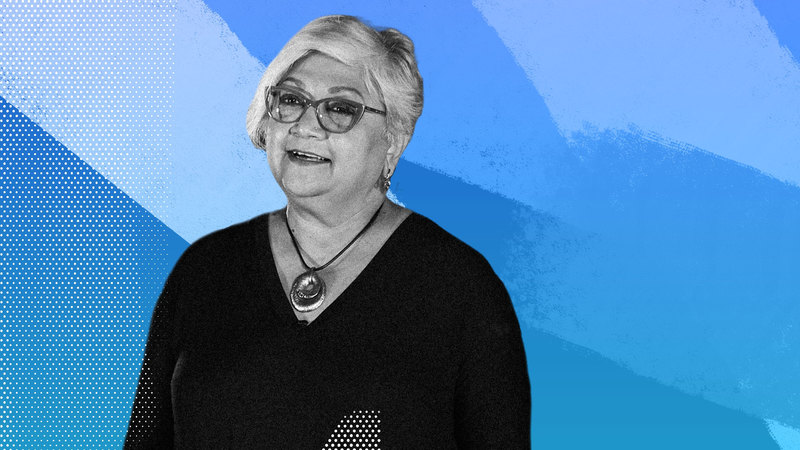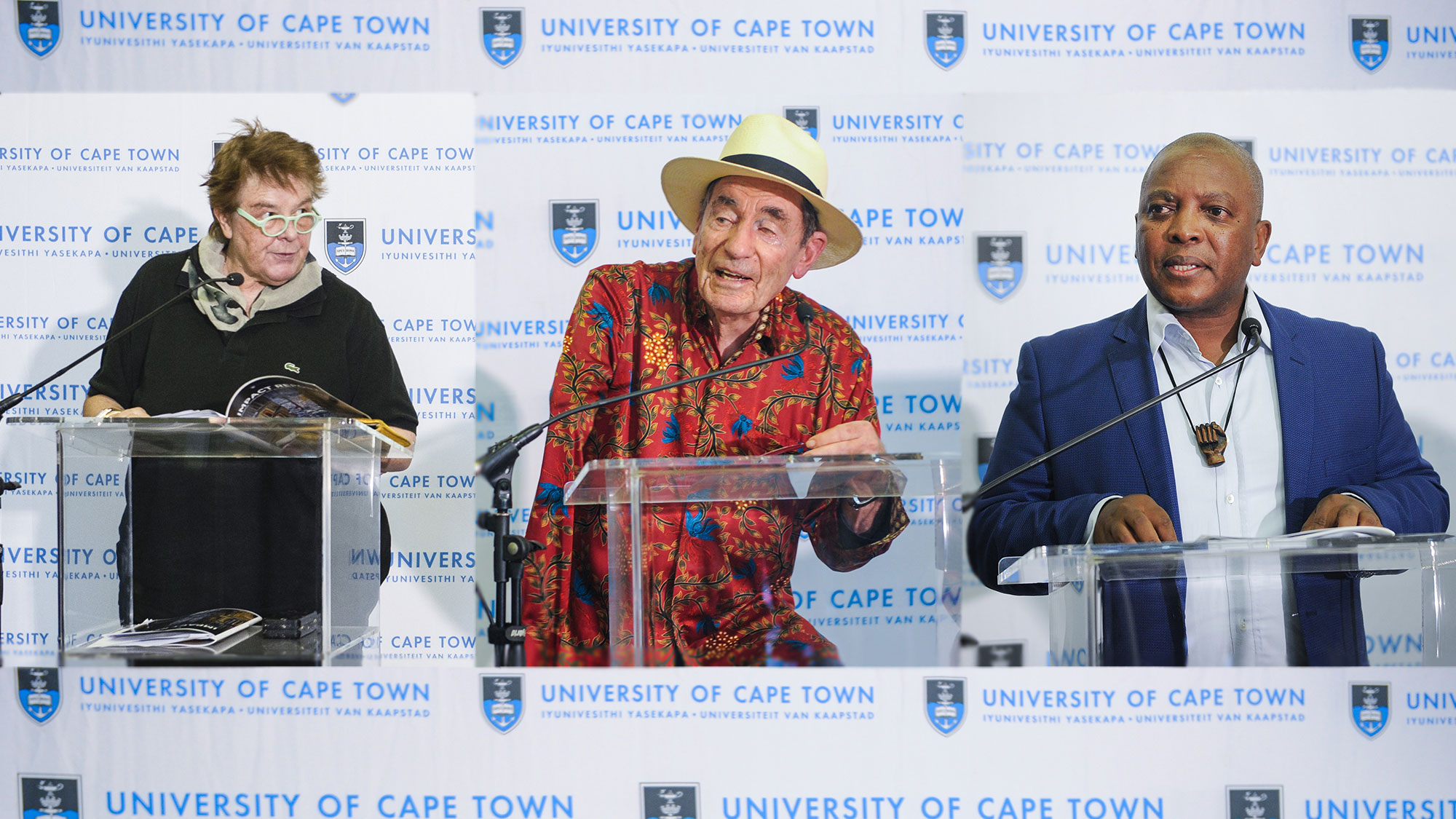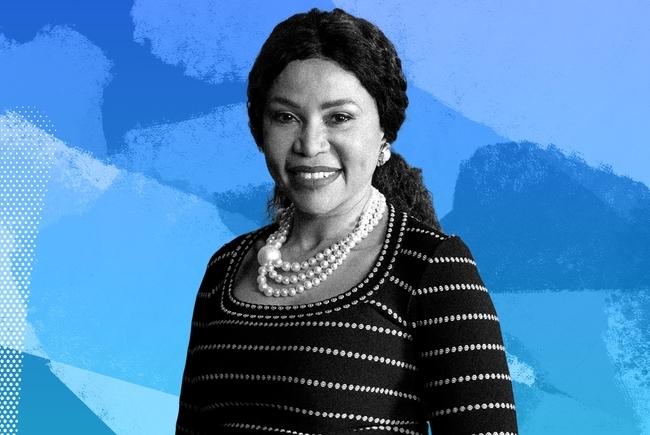UCT Libraries
27 September 2024 Read time 5 min.
While this reporting period focused on business continuity, the adaptation of a hybrid working and service model for UCT Libraries, and the second anniversary of the Jagger fire and its concomitant challenges and successes, it was also important to continue strengthening the libraries’ leadership and management team, determine the state of health of the libraries and its future proofing through strategic reviews and planning.
After the disruption of the pandemic and redefining normalcy, it was also clear that the future lay in challenging our thinking and having the courage to do things differently. Author Tony Robbins says, “The path to success is to take massive, determined action”, and that is exactly what we did in 2023. The processes undertaken and the decisions made were all underpinned by clarity of purpose, detailed planning, collective ideas and intelligence, healthy energy, determination, long hours, and commitment. We succeeded in flipping the VUCA (volatile, uncertain, complex and ambiguous) world we occupied on its head by focusing on vision, understanding, clarity and agility.
Decisions made and massive, determined actions taken for UCT Libraries relate to:
1. Strengthening the management and leadership capabilities through the libraries’ leadership building block series, including the StrengthsFinder and Omniview 360 assessment tools.
This series, held over 18-months, included personal introspection, professional reflections, robust engagements and a deeper understanding of their strengths, perceptions and roles towards the articulation of a new strategic plan for the libraries.
- Gauging the state of health of the libraries through the administering of a Staff Engagement Survey. The success of an organisation is directly connected to its people, culture, values, and ways of engagement. The impact of the lockdown, the Jagger fire, return to campus and organisational changes were felt variously across the libraries. As part of our ongoing strategic and organisational development trajectory, we conducted a libraries-wide Staff Engagement Survey, which enabled us to determine the “state of health” of UCT Libraries as an organisation, identify areas of concern and progress, and to guide new ways of engagement.

2. Business continuity
UCT Libraries has a staff headcount of 115 comprising of 107 permanent staff and 8 contract staff. They are located in the various sections of the two main divisions, namely Research & Learning (R&L), and Information Systems & Resources (IS&R), which encompass the user-facing and technical facets of an academic library respectively. Business continuity is premised on a hybrid practice model that prioritises:
- user-facing services in support of teaching, learning and research, which necessitated the return of the entire R&L team (60+). The mainstreaming of the Virtual Library Service ensures the UCT Libraries’ ability to pivot from a contact to virtual service, as required
- job requirements and responsibilities based on:
- the web-based technical nature of services such as acquisitions, discovery, cataloguing, digital scholarship, data curation, and GIS that may be performed remotely by the IS&R team (22). However, staff are required to work on-site twice a week and to attend in-person meetings, as required.
- tasks that can only be performed on-site such as facilities management, digitisation, and post-Jagger fire recovery, which required the return of staff (20) to the workplace.
- new ways of working, productivity and continuing efficiencies. All staff have been provided the necessary equipment, tools and software to facilitate their work efficiency and productivity.
While this was mostly managed seamlessly, we have had to contend with the emotional and health well-being of staff, and perceptions of unequal work practices. The directorate and management team are mindful of the current model in place to ensure fairness and address constraints across the workplace through regular team meetings and communiqués.
3. Second anniversary of the Jagger Library fire
The second anniversary of the Jagger Library fire was marked by the launch on 18 April 2023 of an extraordinary book titled, The Book from the Ashes at an event co-hosted by the Vice-Chancellor interim Emeritus Professor Daya Reddy; and Ujala Satgoor, the executive director of UCT Libraries.
This 289-page book, developed over a period of 20-months, is an outcome of a collaboration between DSTV/Multichoice (Africa’s greatest storyteller), Ogilvy (the specialists in storytelling) and UCT Libraries Special Collections (the custodian of many stories). It is a compilation of texts from remnants and salvaged items, and printed with ash ink developed from the ash and rubble collected from the site. This book would thread the deep and personal reflections of several alumni – Professor Timm Hoffmann, Dr Mamphela Ramphele, Professor Joan Hambidge, Judge Albie Sachs, Nkosinathi Biko, Carl Manlan, Professor June Bam-Hutchison, and Musa Mnqungwana – to the creative interpretation of materials salvaged from the fire on African history, politics, memory, identity, gender, culture and the environment through the last millennium.

This unique book is a single literary art piece and symbolic of the knowledge and human endeavours linked to the Jagger Library. It is symbolic of the collections painstakingly developed and managed since the early 1950s representing the evolution of an academic and research African Studies collection at a time when libraries and access to libraries were political. It also represents the commitment and tenacity of the individuals and professionals behind the scenes who were tasked with sourcing materials from the continent and carefully curating collections of the continent and for the continent. It also alludes to new beginnings and the optimism we have for the future of the new African Library and Archives.
UCT Libraries, in partnership with the National Library of South Africa (NLSA), the Endangered Archives Programme of the British Library and the National University of Lesotho, hosted a Round Table on 8 and 9 October 2024 at the UCT Graduate School of Business (UCT GSB) in Cape Town. The 2021 Jagger fire, the destruction of documentary heritage due to political strife and climate change have served as impetus for this conversation. Limited to 50 participants, it was a gathering of professionals from Cameroon, Eswatini, Lesotho, Mali, Namibia, South Africa, United Kingdom, United States of America (USA) and Zambia.They weregalleries and ven representing national libraries, university libraries, government agencies responsible for arts and culture, archives, museums, galleries and vendors. Discusions includded why preservation and conservation is important; perspectives from custodians of special collections; what were some of the disasters experienced and how they were handled; digital preservation initiatives on the continent; the how and workflows from conservation to digital preservation; and policy and strategy development at leading institutions responsible for national heritage conservation such as the Library of Congress (USA), the British Library, IFLA Preservation and Conservation Section and the NLSA. The outcome of this two-day dialogue is the following policy framework that could be adapted for different contexts on the continent.
4. Service innovation
By adopting a sustained and disruptive service innovation mindset, UCT Libraries has been able to assert itself as a partner to teaching, learning and research through the scholarly and research capabilities service, advanced bibliometrics and research landscape analysis services, and a contributor to the knowledge project of the university by broadening the scope of open publishing through a social justice lens and assuming the responsibility of hosting within the libraries the returned UCT Press.
Scholarly and Research Capabilities Service (S&RC)
The internationally recognised concept of information literacy has been reconceptualised for a South African student community, focusing on developing capabilities as opposed to the negative association of making the student literate. The S&RC framework takes into consideration the challenges of the student and allows for the student to immerse themselves in the programme at the point of need. The concept of S&RC is supported by several academics and the comments such as “extremely progressive” and “fit for our community” is now associated with the reimagined service.
An element of S&RC is student orientation. Building on a different approach adopted for 2023 with regards to student orientation, an audio tour of the library was developed and launched. This self-guided audio tour showcases different areas of the library and is available throughout the year at the point of need. Students can listen to the audio tour in one of four languages, ie English, Afrikaans, isiXhosa or Sign Language, and is accessible from a mobile device or computer at any point from any location. It therefore aims to encapsulate the S&RC principles, with the expressed aim of “leaving no one behind”.
In addition to the orientation programme, three other modules have been designed by the S&RC team, ie information gathering, a combined literature review and reference management module, and academic integrity (formerly plagiarism). These three modules, together with the “My first assignment” that had been created will be designed into open educational resources (OERs), which will incorporate the scaffolding approach of the S&RC framework, ie to use relevant information for a specific purpose at a specific time. These OERs will be publicly accessible and will highlight the diverse and inclusive fundamentals of S&RC.
UCT Press
The relaunch of UCT Press was held on 19 October 2023 in the Hlanganani Junction, at Chancellor Oppenheimer Library, with approximately 100 guests attending online and in-person. Hosted by the UCT Press Board, invited guests represented authors who had published with UCT Press since its inception in 1994, various academics and researchers from the UCT community, representatives from university presses, academic library directors across the country, and international partners involved in publishing and disseminating knowledge.
The operationalising of UCT Press into Scholarly Communication and Publishing Unit slowly became a reality and gained stability as the team worked through the different permutations of transitioning a university press, including the various kinds of workflows and managing the mindset from being a wholly commercial to a hybrid press with an open publishing option.
To support the activities of the Press Board, a UCT Press Management forum has been created to oversee the operational activities of the press. As the library does not have the necessary skills and infrastructure to manage the technical processes of a university press, a service level agreement was signed with African Sun Media for those who choose the commercial publication option. UCT Press uses the entire operational workflow of Open Monograph Press software.
The overwhelming evidence of increased visibility, accessibility and discoverability from countries across the world may be attributed to the new business model of transitioning UCT Press toward open access. Former Deputy Vice-Chancellor for Research & Internationalisation Professor Sue Harrison, who led this transition process, said: “Our new model of the UCT Press is taking back our scholarship from commercial entities and making that accessible to all Africans who have access to the internet. In so doing, UCT Press ensures no compromise on academic rigor. There’s an explicit commitment to uphold the highest academic standards.”
The press published three new titles in 2023 and 64 ‘non-selling’ retrospective titles, whose authors granted rights for their books to be available as open-access books on the platform. Since being republished open access, the reach and number of downloads have been unprecedented. An academic monograph usually has an average print run of 300 copies and the number of downloads as an open-access monograph has exceeded authors’ expectations.
“As a recorder of the words of ordinary people, I knew that open access would indeed encourage people who don’t normally buy books, people who distrust academics and academic work, nevertheless, out of curiosity, once they heard that the way that they speak and use words like ‘bunny chow’ and ‘lannie’ and ‘gatsby’ in Cape Town are actually taken seriously in the dictionary, that people would want to download and spread the word around,” said Emeritus Professor Rajend Mesthrie.
Book: Mesthrie, R. 2010. A Dictionary of South African Indian English. Cape Town: UCT Press.
Download statistics: 792 times over a 12-month period.
“And so we’re really thrilled by the reach that the press has given to the book. It is far beyond anything that we could have dreamt of if we have just made it a Malawi publication. So, while we’re glad to have the book available in Malawi, what has been really exciting for us is the wide international reach that it has had through UCT Press,” noted Professor Kenneth R Ross from Zomba Theological College in Malawi.
Book: Ross, K., Chiweza, A. & Mulwafu, W. 2022. Beyond impunity: new directions for governance in Malawi. Cape Town: UCT Press.
Downloaded statistics: 792 times over a 12-month period.
5. Future-proofing UCT Libraries for continued relevance and sustainability
The Libraries Management Team (LMT) leadership building blocks programme was designed to culminate with the formulation of the libraries’ next strategic plan (2024–2028). Since June 2023, the LMT through active engagement, robust debate and understanding of the contexts that inform academic library development and practice, concluded:
- strategic planning for institutional alignment
- risk identification and mitigation.
Furthermore, in collaboration with Properties & Services, the re-conceptualising of the entire network of UCT Libraries, including the rebuilding of the Jagger Library through master planning, was completed and adopted.
It is a year that may be defined by a strong sense of achievement in recovery, service delivery, business continuity, and resilient leadership. It showed us what is possible, what we need to continue working on and how we can do things differently with the right attitude and values.
Ujala Satgoor
Executive Director: UCT Libraries
 This work is licensed under a Creative Commons Attribution-NoDerivatives 4.0 International License.
This work is licensed under a Creative Commons Attribution-NoDerivatives 4.0 International License.
Please view the republishing articles page for more information.
Annual reviews
Year in Review 2023
27 Sep 2024
Year in Review 2023

There are different ways to define the University of Cape Town (UCT).
27 Sep 2024 - 2 min read
By its very nature, the university sector is a place of transition.
27 Sep 2024 - 4 min read
In a world whose future relies increasingly on international co-operation and global thinking, developing and maintaining strong partnerships with institutions in other countries can be a game changer for research that addresses the wicked problems that have become household words in the last few years.
27 Sep 2024 - >10 min read
Previous Editions





































